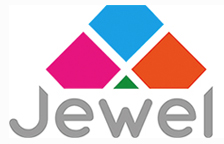Nick Earl
Nick engaged Jewel Training & Development when he was a contract Director for a Fleet Company who was struggling with a poor customer relationship. Nick was looking for a way to transform the relationship and regain their trust.
"I engaged Jewel who set up a tailored and highly interactive joint workshop for the company and customer management teams in order to better understand each other and identify opportunities on how to work better together. The workshop was very cleverly constructed and executed in that it first helped us all to understand our personality types and the way in which we would behave in certain scenarios. This then allowed us to better understand the drivers behind previous behaviours and what the true needs of our customer was so that as a team we could align our interaction and service with these needs on a more personal level. It was the catalyst to a complete transformation of the relationship and led to significant improvements in the service and cost savings we were expected to deliver. It also gave us a sufficiently strong reputation and relationship to win the subsequent contract rebid from what was previously seen as an unsalvageable position!"
As a result of the successful partnership training Nick engaged Jewel to run further training in the business, including partnership training for the evolving team, Customer Services NVQs and Coaching for some of the management team who needed support in making the transition to the new customer care ethos.
When asked how Jewel has helped get you to where you are today, as CEO of Safran Helicopter Engines UK, Nick said "The partnering workshops with Jewel were transformational for me in the way in which I deal with people. It helped me recognise that people can have very different personalities and therefore respond in different ways to situations as well as the ways in which they are communicated with. It has allowed me to be far more self-aware about my own personality type and recognise the strengths and potential weakness in the way I interact with people. Recognising the shortcomings of specific default behaviours means that I remember to act in different ways depending on the situation and consider other options and points of view that I may have previously overlooked. Importantly it has given me greater confidence to tackle the inevitable negativity associated with challenging transformation programmes by trusting my judgement and ability to develop strong interpersonal relationships with my customers and teams."

